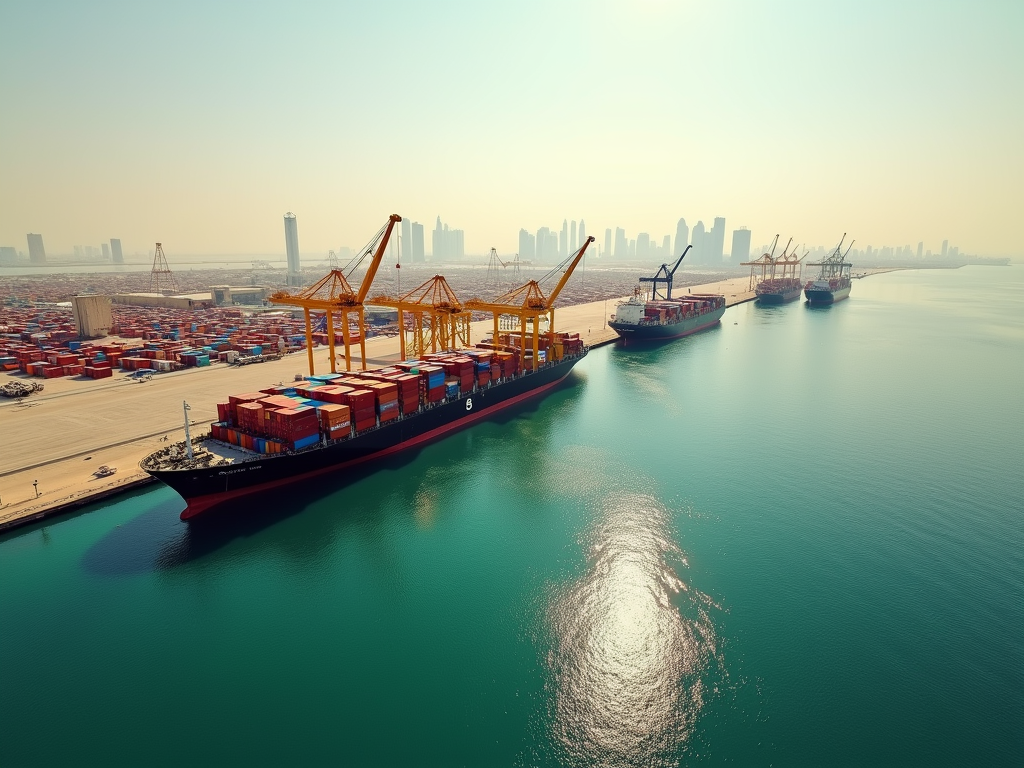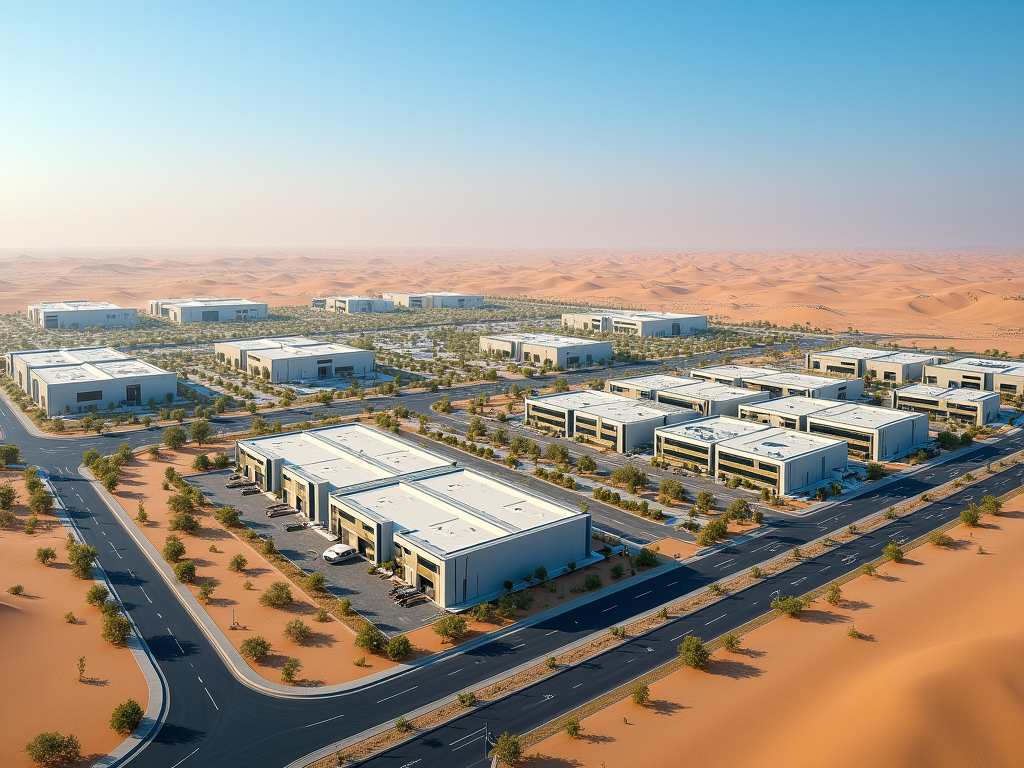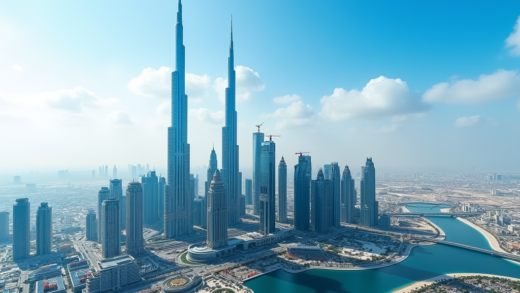Dubai has firmly established itself as a pivotal global hub for international trade, thanks to its strategic location, advanced infrastructure, and business-friendly environment. This thriving metropolis connects East and West, providing a critical junction for the movement of goods across continents. With a state-of-the-art logistics sector, advantageous tax policies, and a diverse economy, Dubai attracts businesses and traders from around the world. This article delves into the factors that contribute to Dubai’s unique position in the realm of international trade, examining its infrastructure, logistics capabilities, and policy frameworks.
The Strategic Location of Dubai

One of the most significant factors that enhance Dubai’s status as a global trade hub is its advantageous geographical location. Positioned at the crossroads of Asia, Europe, and Africa, Dubai serves as one of the most accessible points for international shipping and transportation. This strategic corner of the globe allows for:
- Proximity to key markets: Dubai is within a significant air and sea travel range to major markets in Asia, Europe, and the Middle East.
- Direct trade routes: The city has direct shipping and aviation routes that facilitate the swift transport of goods.
- Time zone advantages: Dubai’s time zone allows traders to operate across multiple regions without facing substantial time barriers.
- Regulatory ease: Its strategic location is underpinned by regulations that support efficient trade practices.
Overall, the geographical advantages contribute immensely to the seamless flow of global trade through the emirate, successfully positioning it as a key trading partner amid international markets.
Robust Infrastructure Supporting Trade

Dubai boasts world-class infrastructure that bolsters its position as a premier international trade hub. The city has heavily invested in developing state-of-the-art facilities, allowing for efficient logistics and transport operations. Key elements of this infrastructure include:
- The Jebel Ali Port: The largest and most advanced port in the Middle East, serving as a major gateway for international shipping.
- Dubai International Airport: One of the busiest airports in the world, facilitating the swift movement of cargo and goods.
- Free Zones: Dedicated areas, such as the Dubai Multi Commodities Centre (DMCC), that offer tax exemptions and simplified customs procedures, appealing to international entrepreneurs.
- Road and Rail Networks: An extensive and efficient transport network connecting various modes of transportation, ensuring quick delivery and accessibility.
This robust infrastructure is crucial for businesses aiming to streamline their operations and access global markets effectively.
Business-Friendly Environment
Dubai’s business environment has been designed to encourage international trade and entrepreneurship. The city offers a variety of incentives that attract foreign investment and eliminate bureaucratic hurdles. Highlights of Dubai’s business-friendly policies include:
- No personal income tax: This favorable tax regime allows businesses to maximize their profits.
- 100% foreign ownership: Entrepreneurs can own their companies entirely, a significant advantage over other regions.
- Strategic trade agreements: Agreements with numerous countries provide preferential access to various markets.
- Access to capital: A wide range of financing options, including venture capital and private equity, supports startups and expanding companies.
- Modern technology and innovation: The UAE government actively fosters technological advancement, which greatly benefits trade and logistics.
These policies underline Dubai’s commitment to facilitating international trade and fostering a thriving business climate.
In the pursuit of being a global trade leader, Dubai has embraced cutting-edge technology and innovation. The integration of advanced technologies within the logistics and trade sectors enhances efficiency, security, and transparency in operations. Notable technological initiatives include:
- Smart Ports: Automation and artificial intelligence in operations streamline shipping processes.
- Blockchain Technology: This is employed to increase transparency and reliability in trade transactions.
- E-commerce platforms: E-commerce growth has led to a thriving online marketplace, enabling easier access to international goods.
Dubai’s adoption of innovative solutions signifies its commitment to maintaining competitiveness in the global trading landscape and adapting to changing market demands.
Conclusion
Dubai’s position as a global hub for international trade stems from a combination of strategic location, robust infrastructure, business-friendly policies, and a commitment to technological advancement. As the demand for international trade grows, Dubai continues to evolve, solidifying its reputation as a critical player in the global economy. The emirate’s ability to adapt to the rapidly changing marketplace and maintain an attractive environment for businesses bodes well for its sustained growth in international trade relations.
Frequently Asked Questions
1. What makes Dubai an attractive location for international trade?
Dubai’s strategic geographical location, advanced infrastructure, tax-friendly policies, and ease of doing business make it a highly attractive destination for international trade.
2. How does Dubai support entrepreneurs and startups?
Dubai supports entrepreneurs by offering tax exemptions, 100% foreign ownership, access to funding, and a streamlined process for business registration.
3. What role does technology play in Dubai’s trade sector?
Technology enhances efficiency and transparency in Dubai’s trade sector through innovations like smart ports, blockchain, and growing e-commerce platforms.
4. What are Dubai’s main free zones for trade?
The Dubai Multi Commodities Centre (DMCC), Dubai Airport Freezone, and Jebel Ali Free Zone are some prominent free zones that facilitate international trade.
5. How does Dubai’s location benefit global shipping routes?
Dubai’s location allows easy access to key markets in Asia, Europe, and Africa, shortening shipping times and increasing accessibility for traders worldwide.


